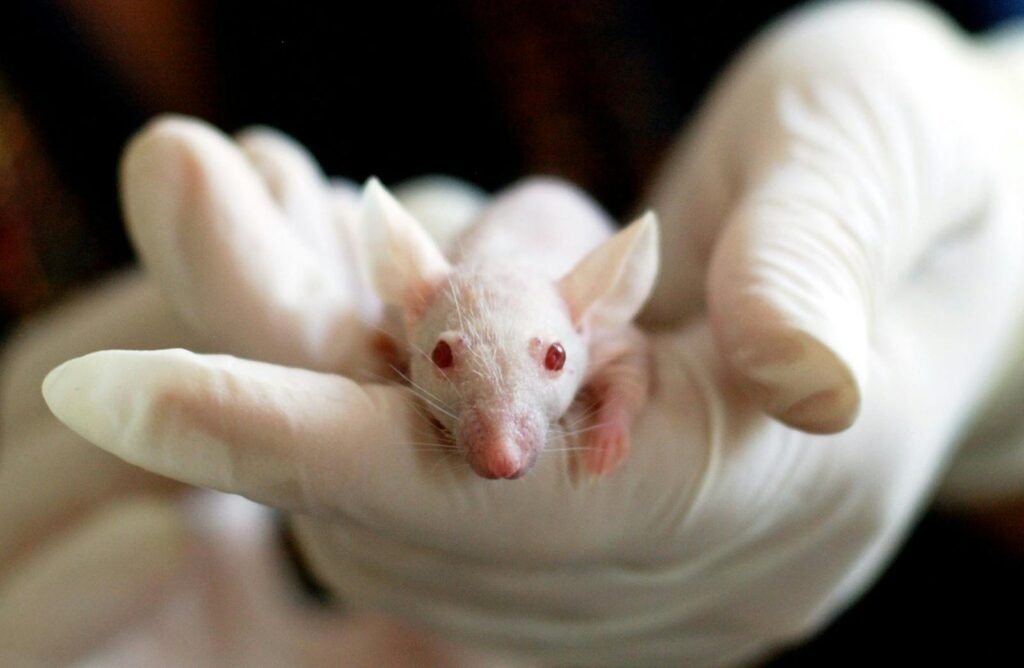Combining two FDA-approved cancer drugs trametinib and rapamycin increases the lifespan of mice by an amazing 30%, according to a ground-breaking study that strays the line between anti-aging science and cancer treatment. Published in Nature Aging on May 28, 2025, the results imply that already used to fight tumors, these medications could also slow aging by lowering chronic inflammation, postponing cancer, and rewiring gene activity in ways that transcends their individual effects. Should we be delighted or wary though, should this mouse miracle apply to humans?
The “One-Two Punch” That Defied Expectations

Under direction from the Max Planck Institute for Biology of Ageing and University College London, the study examined the drugs both alone and in concert. The outcomes were startling:
- Consistent with previous studies, rapamycin by itself extended mouse lifespan by 15–20%.
- A melanoma medication, trametinib by itself added a small 5–10%.
- Together, they synergized to increase lifespan by almost thirty percent far beyond simple addition.
Not only were the numbers shocking, but also the way the mix worked. Unlike most drug interactions, this couple caused unusual genetic changes not observed with either drug alone, not only enhanced the effects of each other.
Beyond Longevity: Healthier Organs, Fewer Tumors
The mice aged better than merely lived longer. Important advances in health were:
- Lower chronic inflammation in the kidneys, brain, and muscles—a major contributor to age-related decline.
- Fewer tumors: Spleen tumors fell in men and rates of liver cancer dropped by 35–45%.
- Preserved brain metabolism: A sign of metabolic malfunction, the combo prevented age-related spikes in brain glucose absorption.
This implies that the drugs actively fight several aspects of aging, a rare achievement in geroscience, not only postponing death.
Why the Combo Works: A Double Strike on Aging Pathways
Both drugs target the insulin/IGF/mTORC1/Ras network, a central hub for aging and cancer:
- Rapamycin inhibits mTOR, a protein that accelerates aging when overactive.
- Trametinib blocks MEK/ERK, a pathway linked to cellular stress and cancer.
By hitting two nodes of the same network, the combo likely prevents compensatory signaling, a common flaw in single-drug approaches. Gene analysis revealed the duo altered hundreds of age-linked genes in ways neither could alone.
The Human Question: Hope and Hurdles

While the results are thrilling, scientists urge caution:
- “We don’t expect a 30% human lifespan increase,” admits co-author Dame Linda Partridge, but the goal is healthspan staving off disease.
- Rapamycin’s side effects (e.g., immune suppression, elevated blood sugar) remain a concern, as biohacker Bryan Johnson noted after dropping it from his regimen.
- Trametinib’s safety in healthy humans is untested, though its FDA approval for cancer speeds clinical trial potential.
The Biohacker Dilemma: Should We Experiment Now?
The study has already sparked interest in longevity circles, but experts warn:
- Rapamycin’s risks (infections, metabolic disruptions) may outweigh benefits for healthy people.
- Optimal dosing is unclear, mice received intermittent rapamycin and low-dose trametinib to avoid toxicity.
- “This isn’t a DIY project,” stresses researcher Sebastian Grönke, urging rigorous human trials first.
What’s Next? From Mice to Medicine

The team’s roadmap includes:
- Fine-tuning trametinib doses to maximize benefits and minimize side effects like liver stress.
- Human trials for age-related diseases, possibly starting with high-risk groups (e.g., early Alzheimer’s patients).
- Exploring other drug combos could adding a third agent (like acarbose) push gains further?.
Conclusion: A New Dawn for Aging Research?
This study isn’t just about two drugs, it’s a paradigm shift. By reposting cancer medications for aging, scientists are pioneering a “multi-node” approach to longevity, targeting multiple aging pathways at once. While humans won’t see mouse-level leaps soon, the research opens a thrilling door: What if slowing aging is as much about clever drug combos as it is about single “miracle” pills? For now, the message is clear: the future of anti-aging medicine is combination therapy but the clock is ticking to prove it works for us.
Sources:

Jan loves Wildlife and Animals and is one of the founders of Animals Around The Globe. He holds an MSc in Finance & Economics and is a passionate PADI Open Water Diver. His favorite animals are Mountain Gorillas, Tigers, and Great White Sharks. He lived in South Africa, Germany, the USA, Ireland, Italy, China, and Australia. Before AATG, Jan worked for Google, Axel Springer, BMW and others.




